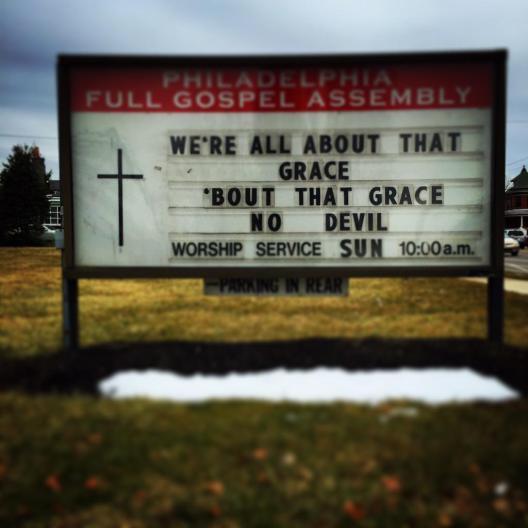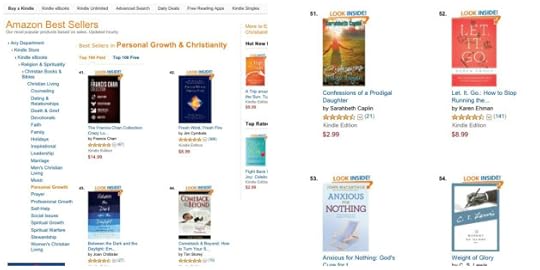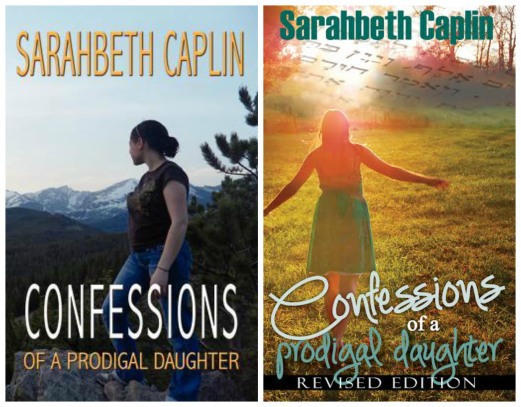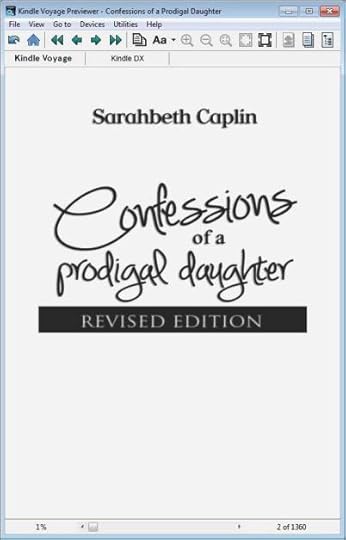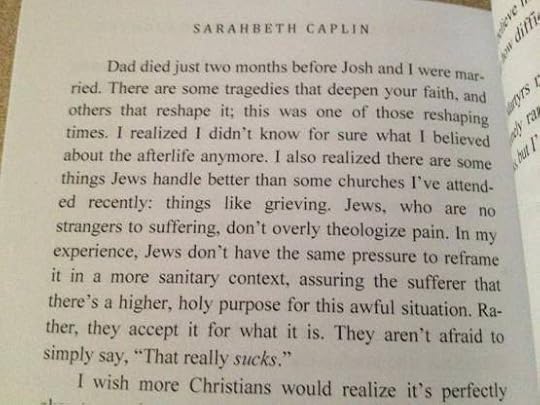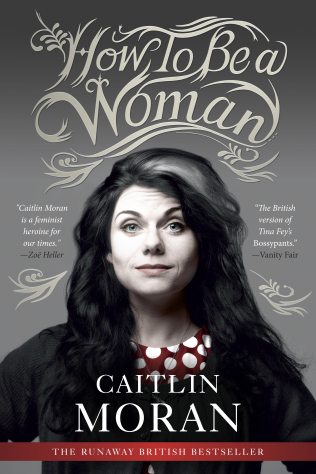Sarahbeth Caplin's Blog, page 48
June 3, 2015
When faith and culture collide
These are some passages pulled from my incubating second memoir and may be slightly scatter-brained.
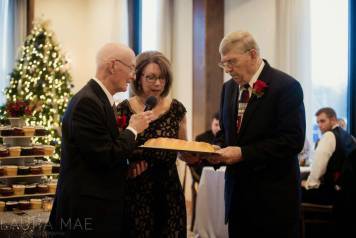 It’s hard to draw the line between flattering imitation and cultural misappropriation. I have said before that my deep love of Asian food does not make it okay for me, a very obvious Caucasian, to start identifying as Asian. But America’s adoption of so-called Asian cuisine differs from Christianity dabbling in Judaism because the latter has a historical overlap. One might argue that Christians with an interest in incorporating Jewish practice are the ones doing it “right,” because Jesus was intended to be the fulfillment of the Old Testament prophecies. Fortunately or unfortunately, depending on your stance, that is not what happened. Christianity and Judaism evolved in separate directions, and mixing and matching rituals is not as cut-and-dry as many Christians want to think it is.
It’s hard to draw the line between flattering imitation and cultural misappropriation. I have said before that my deep love of Asian food does not make it okay for me, a very obvious Caucasian, to start identifying as Asian. But America’s adoption of so-called Asian cuisine differs from Christianity dabbling in Judaism because the latter has a historical overlap. One might argue that Christians with an interest in incorporating Jewish practice are the ones doing it “right,” because Jesus was intended to be the fulfillment of the Old Testament prophecies. Fortunately or unfortunately, depending on your stance, that is not what happened. Christianity and Judaism evolved in separate directions, and mixing and matching rituals is not as cut-and-dry as many Christians want to think it is.
But who am I to judge? I speak as someone who had a Jew-ish Christian wedding to appease my relatives and my Baptist in-laws. Our “sanctuary” was a party room at a country club, a religiously neutral spot despite being decorated for Christmas (we married in early December). The ceremony was officiated by a friend of mine who grew up Jewish and is interested in the Christian faith, but to my knowledge has never officially converted. He read 1st Corinthians 13 and Joshua crushed a glass at the end of the ceremony. My mother and Josh’s grandfather recited their respective prayers before dinner and together they cut challah bread. There was no chair lifting, but we did make sure to include several rounds of hora dancing to Hava Nagila (which was a challenge explaining to my gentile fiancé: he said it was very hypocritical of me to forbid strippers at his bachelor party if I wanted a “whore dance” at our reception).
I understand potential accusations of hypocrisy – I have been called a hypocrite before for scoffing at Christians playing Jewish while still tightly holding on to my “Jewish Penicillin” soup bowl and blue “Happy Hanukkah” Christmas stocking. My only defense is that Jewish culture was a defining marker of my childhood, and did not disappear when I prayed the Sinner’s Prayer. Such accusations are hurtful, but I understand them – how many people might say my brand of Christianity is not True Christianity™? No one’s belief system is universally accepted by anyone, and several Christian denominations have been condemned as unbiblical throughout history. How does anyone know if they’re “doing it” right?
One of my more publically stressful moments of asking this question happened during a lecture in seminary. All students regardless of concentration (mine was faith-based crisis counseling) were required to take biblical history classes, and one of the last ones I took happened to dissect several Old Testament prophecies that are believed to point to Jesus. None of them seem to foreshadow Jesus more than Isaiah 53, better known as the passage of the suffering servant, which quite clearly describes a man being “pierced for our transgressions.” Upon the first reading, it really does seem to be foreshadowing the future, and indeed it is – except my understanding of that passage, per my Hebrew education in synagogue, is that the “suffering servant” is referring to the Jewish people as a whole (historians have commonly used the male pronoun “he” to refer to all Jews as a single unit). Rabbis interpret the passage as prophesizing the future state of Israel, and the necessary suffering required to attain it.
Quite honestly, as a Christian, I sometimes wish I never heard that interpretation, as it can open a very smelly can of worms in bible studies. You can imagine just how unkindly the average Christian will accept that the passage may not be talking about Jesus at all, as that is one of the most compelling verses for the case of Christ. I find myself in a mental tug-of-war, wanting to follow the majority who read it with Christian glasses, because hey, it’s just easier to accept. But then my stubborn inner Jew scoffs at the knowledge of missionaries who have purposely mistranslated passages to confuse and convert Jews, and who understands the Old Testament better than the Jewish scholars, anyway?
I wish I could say I’ve figured this all out, but I haven’t. It is yet another subject that gets filed in the “I Don’t Know” folder of my brain, but since my professor was a Hebrew scholar, I wanted to know his opinion. So either bravely or stupidly, I raised my hand and asked about the possibility that the Christian reading could be wrong, and was promptly called a heretic by the Messianic Jewish major sitting a few rows down from me.
The word slapped, and my face burned. I’d honestly rather have been called a hypocrite, because just about everyone is at some point, but a heretic? As much as I used to dream about following the same path as Joan of Arc, my favorite saint, the heretic label I could certainly live without. Once again, culture and faith collided, and that incident (among others) turned out to be fatal for my career as a seminary student. It was only after I officially resigned that the struggle for reconciliation moved from the backburner of my mind to the very front and center.
Check out my first memoir here.
Filed under: Religion, Writing & Publishing Tagged: Author Sarahbeth Caplin, Christian culture, Christianity, Confessions of a Prodigal Daughter, Controversy, evangelicals, Judaism, marriage








May 21, 2015
On being a stay-at-home feminist
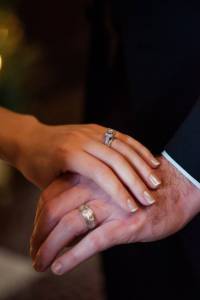 I am a Christian feminist learning to embrace domestic work as part of my job. Right away, I can picture two courts of opinion: some women might praise me for making this choice independently, while others might scoff at my willingness to remain in the 1950s. However, this was not a decision that came easily to me. As someone who has always been ambitious and career-minded, accepting this ‘position’ is still a daily struggle.
I am a Christian feminist learning to embrace domestic work as part of my job. Right away, I can picture two courts of opinion: some women might praise me for making this choice independently, while others might scoff at my willingness to remain in the 1950s. However, this was not a decision that came easily to me. As someone who has always been ambitious and career-minded, accepting this ‘position’ is still a daily struggle.
Growing up, I remember feeling shocked when I learned that, in most of my friends’ houses, their mothers did all the cooking. I remember their equally shocked expressions when they learned that my mother absolutely could not cook – in the thirty-four years she was married to my father, the kitchen was his domain. You could say I had a “reversed” notion of gender roles growing up.
By the time I got over the notion of feminism equaling a hatred of men, bra-burning, and no shaving, I was in my mid-twenties. My involvement in a college ministry introduced me to women who were fulfilled in their roles as stay-at-home mothers, often never putting their college degrees to use in the professional world. Some believed this was the ideal calling for Christian women everywhere: the man provided financially while the woman took care of the house.
This stood starkly in contrast with the arrangement I grew up with, where both my parents worked outside the home. When my father, a trade show manager, was diagnosed with cancer, my mother’s ability to work went from being a personal choice to a necessity. When Dad was forced to retire early, it was Mom who became the breadwinner. At that point, whatever pride was lost in having the woman become the sole provider no longer mattered; having food on the table and bills paid mattered.
When life revealed plans that trumped our own, gender roles became irrelevant – not that they ever mattered much in my home to begin with. My parents’ marriage was sustained by their unique talents and abilities: Dad enjoyed cooking, and Mom did not. Mom understood which clothes could be washed together, and which ones had to be washed separately; Dad did not. There was indisputable harmony in their ability to compromise and make necessary sacrifices.
I started losing patience with the borderline patriarchal views of women and gender roles. It was hard not to be offended by the thought of someone in my church calling my family’s arrangement “sinful.” So I embraced feminism, and left complementarian Christianity behind (though not Christianity itself).
Learning to embrace feminism made it hard not to admire my mother: she was a powerhouse blend of dedication, sensitivity, and ambition, simultaneously earning a PhD while teaching graduate-level classes in nursing full time. When my father eventually succumbed to the cancer, she was not financially despondent. While not all women choose to have careers, my family’s situation illustrated the need to have professional abilities on the backburner, should the unthinkable happen.
My own marital situation is quite different. The gifts that I possess – book writing, blogging, and editing – are not exactly moneymakers in this economy. Simply put, if not for my husband’s full-time job as a physician assistant, there is no way I could provide for myself with my own earnings. I am far from the “professional powerhouse” my mother is, and I confess: I feel a slight amount of shame in that. I support the choice of other wives to stay home cooking and cleaning, but me? No way. Not my life plan.
I was “supposed” to work in publishing, maybe even do some book tours. That could still happen some day, but any rate, it’s not happening yet.
My husband’s background could not be more different than my own. I was raised by liberal, secular Jewish parents, and he was raised in a conservative, evangelical culture. He cannot recall exactly when he decided to become a Christian, since he was quite young. On the surface, it would seem that the two of us together would be a combustive mix; he had the same stereotypical views of feminism that I once did, and up until recently was convinced he couldn’t be a feminist because he is male. Despite the occasional crack about having “hippie” leanings, I am fortunate to have partnered with someone who is supportive of my endeavors, even if he doesn’t quite understand the motives behind them.
So while Josh assists in surgeries, I am working on writing from our two-bedroom apartment. In between chapter edits, I do laundry, run the dishwasher, and vacuum. This is not the situation I dreamed about, but it’s reality, and I am learning to embrace it. The fact of the matter is, these household chores need to be done at some point, and after working up to fourteen hours a day, Joshua is exhausted when he finally comes home. It’s not because my “wifely duty” demands I have dinner warming in the oven when he returns, but rather, it’s an act of love. And it really does warm my heart when he tells me, “Dinner was great, Hon. Thank you.”
I may not be following exactly in my mother’s footsteps, but following the example of my parents’ marriage, ours is also considered a partnership. It is easier for me to embrace housewifery knowing that if our roles were reversed, and I were the one making our money, Josh would support me and contribute the same way I am now. This is the arrangement that works for us, and it doesn’t have to be a one-size-fits-all model, nor is it set in stone. There is no telling what the future might bring, and if one day our roles might reverse. Submission, for us, is using our time and our gifts to serve the other. We have learned to be each other’s helpmates.
Filed under: Feminism, Religion, Writing & Publishing Tagged: Author Sarahbeth Caplin, cancer, Christian culture, Christianity, Controversy, evangelicals, Feminism, marriage, Writing








May 18, 2015
No, not ‘Happy Father’s Day’
Last week on Mother’s Day, for the first time I can remember, I did not make an atypical “I have the best mommy ever!” post on social media. Instead, I posted one of my favorite pictures of my mom and I from my wedding directly on her Facebook timeline, which I guess makes more sense, considering she is the only intended recipient.
Truthfully, Mother’s and Father’s Day posts are some of my favorites because gratitude is refreshing. It’s encouraging to read posts affirming the efforts of parents who probably wondered many times if they were doing the parenting thing right (to which I’d say, if that fear ever crossed your mind, you probably are doing parenting right). And it’s fun to see pictures of my friends as awkward, gap-toothed little kids in those “What were they thinking?” 80s and 90s clothes.
This year was the first time I forced myself to be mindful of people who don’t have mothers – to acknowledge how hard this day must be for some. Part of me was tempted to go above and beyond the usual public praising, because Mama Caplin is the only parent I have left – but for what purpose? It would make much more sense to just call her and tell her everything I’d want to say on Facebook.
Now the commercials and website advertisements are already telling me to remember to pick out something nice for Dad. For this year’s Father’s Day, I’ll probably avoid Facebook altogether. But that won’t accomplish much: every supermarket and department store will be reminding me, too. Well-intended cashiers and store employees, following the hideous corporate requirement to “get to know” all their customers, may ask me what my plans are. It would be downright snarky to reply “Visit Dad’s grave” (even though his remains are sitting in a box on the mantel until we decide what to do with them, but they don’t have to know that).
On one hand, it would feel good to demolish the assumption that everyone has a father, and not only that, that everyone has a good father. It will take all the strength I have not to say, “You don’t understand! Stop reminding me! Leave me alone!”
It’s true, not all people understand. But it’s equally true that I’m far from the only person without a father this Father’s Day. I’m far from the only one hurting on Mother’s and Father’s day for a myriad of reasons: it’s a hard day for couples with fertility issues, couples who lost children, people with parents who are unworthy of any honor or praise. I’m far from the only person with pain that others can’t see, but during that pivotal first year of grieving and adjusting to all the changes, it’s very easy to believe you’re the only one going through this. And it is true that no one else understands – no one will understand what it’s like for you, in your exact situation.
There is a definite “only me” attitude that comes with grief; it doesn’t make me special or uniquely damaged to have lost a parent. It doesn’t make the pain any less, but it does give me another reality check that everyone is dealing with something. No matter how tactful and PC you try to be, you’ll more than likely end up saying something to trigger the memory of loss and poke a wound in some people. There’s nothing you can do about it, to a point.
You can’t stop yourself from making assumptions, but what you can do is assume with caution. Holidays in general are painful affairs for many people for many reasons: you can be sensitive without censoring.
Filed under: Other stuff Tagged: cancer, censorship, customer service, depression, Facebook, grief








May 16, 2015
On a scale of Anne Frank to ISIS: thoughts on grace and inherent worth
I’ve heard varying explanations regarding humanity’s true worth and value. Some Christians believe we all have inherent worth and value because we are made in God’s image, a mindset that fits well with the Jewish one I was taught. But there are other Christians who believe it is only when you accept Christ’s sacrifice that you gain (not earn!) worthiness. I’ve consulted many a dictionary to parse the difference between “unworthy” and “worthless,” and have loosely concluded that they are not the same thing when used in a spiritual context. We are sinners, therefore unworthy of heaven, but worthy enough for Jesus to die for us.
That being said, I have a hard time swallowing the idea that not being worthy of heaven means we all deserve hell. Eternal punishment for finite crimes – I’m still working through my beliefs about that, or what I think hell even is. Not all Christians believe it’s a literal lake of fire, but eternal separation from God – whatever that means. The definition of “good person” has as many explanations as there are people. One culture’s “good” is another culture’s evil: the members of ISIS probably think they are candidates for Muslim sainthood; most everyone I know views their actions as the epitome of evil. If “good” can be measured on a scale of Anne Frank to ISIS, do most of us slide more towards Anne? What about people somewhere in the middle? At which point on the spectrum does one become an official “bad” person?
I think it was easier for me to see myself as a lowly sinner in need of redemption because of what my boyfriend did. The rapes were bad enough, but I was also forced to walk several paces behind him if we went out in public, so people wouldn’t assume we were a couple. He’d walk so fast my little legs could barely keep up, and he would become irate if I asked him to slow down. When he eventually found someone else, and actually changed his relationship status on Facebook to acknowledge it – something he never did with me – it solidified the fact that something was obviously wrong with me. There had to be, or else I never would have been kept a secret.
I needed therapy, certainly, but more than ever I was convinced I needed Jesus to redeem me. I was literally nothing; I needed Jesus to become something, because the narrative of his life spoke to my desperate need for significance and worth. I am not shy about admitting that the reasons for my conversion were primarily emotional ones: I think they are for most adult converts, trying to make meaning out of something awful. I never pored over the Old Testament prophecies to see they really pointed to Jesus – I needed a promise of tangible redemption that Judaism didn’t have, or wasn’t ever taught to me. Jesus fit that need perfectly. Unlike my abusive relationship, it was okay, even encouraged, to make my identity all about him.
Nowhere is this point driven harder than during the worship portion of an evangelical church service. The depth of our common depravity and general helplessness is frequently set to heart-rendering, somber, or at times even catchy tunes: sticky little earworms that are so easy to learn and whose melodies you catch yourself humming while doing dishes or sitting in traffic. So catchy are these songs that you might not stop and critically consider what it is you’re singing about; I certainly didn’t.
In my college ministry days when I thought the sincerity of your faith was measured by how loud and passionately you sang, I waxed poetic about my despicable attempts at righteousness and the wickedness of my heart without so much as a “Wait, what?” I still wonder, and I’ll never really know for sure, how much I would have gone along with this if not for that abusive boyfriend who convinced me of my worthlessness long before the Gospel did.
Because she was one of my first role models, I can’t help but wonder sometimes what Anne Frank might think of all this. There’s no way of knowing how much she knew about Christianity, but if she were able to attend a mainline Protestant church service today, the girl who once wrote “In spite of everything, I still believe that people are good at heart” might be appropriately horrified. After what my boyfriend did, I couldn’t disagree with her more – but isn’t it arguable that what the Nazis did to her and her family was far worse? If she could still believe in inherent goodness in spite of what she went through, what’s holding me back?
“The world,” as Christians say, referencing anyone not following the narrow path of salvation, would come to two radically different conclusions about such a conviction: Anne is either a Jewish saint, or just plain crazy.
Frankly, whenever I read the newspaper or hear stories about ISIS’ latest crime against humanity, it’s not hard to believe we’re all inherently wicked, or at least capable of becoming so. And it goes without saying that if my boyfriend, my first love, acted manipulative and heartless from the very beginning, I never would have returned his calls. Such is the unfortunate trend of abusive relationships, for anyone wondering why so many women put up with them: they never start out that way. By the time you realize you’re in over your head and possibly in grave danger, you’re either too dependent (financially or otherwise) or too desperate to believe that that kind person still lives inside, and this violent monster isn’t who he really is.
In my case, I wanted to believe the latter; not only because I was in love, but as a way of saving face. It’s humiliating when your friends and your family figure out the truth before you do.
But just because one man I thought was good – he was a devout Catholic, believe it or not – turned out to be the opposite doesn’t mean everyone is like that (cue the #NotAllMen protests). Most people have the ability to act decent, if not outright pleasant. But we all know that some people are better at acting like it than others.
If it turns out that most humans are basically okay and don’t really need the gospel – what would we need to be saved from, otherwise? – I know the depth of my depravity. I know that I need grace for the times I thought awful things about the woman buying hotdogs with food stamps; the obese couple at the all-you-can-eat buffet; the classmate who brags about the number of men she’s slept with and wears skirts that barely cover what should be covered in public. I know I do these things; many times I feel justified in doing so. When I sing about needing a savior, I am singing for myself.
Similar sentiments and more in Confessions of a Prodigal Daughter, ranked #51 in Amazon’s top 100 ‘personal growth’ memoirs.
Filed under: Rape Culture, Religion, Writing & Publishing Tagged: Author Sarahbeth Caplin, Campus Crusade for Christ, Christian culture, Christianity, Confessions of a Prodigal Daughter, Controversy, depression, evangelicals, Facebook, grief, hell, Writing








May 14, 2015
Conflating culture with doctrine: a potential follow-up to ‘Confessions’
I’m tinkering with the idea of a follow-up to Confessions of a Prodigal Daughter, which scored spot #64 on Amazon’s top 100 free Kindle books and #51 in paid ‘personal growth’ books this week – right next to C.S. Lewis.
In fact I already have a working title in mind: Add Jesus and Stir: a Jewish-born Christian’s attempt to understand Christian Culture. We’ll just see where it goes…
***
 I’m sitting on the floor of Isabel’s living room, munching on frosted cookies and sipping lemonade, thinking that the dainty yellow plates and flowered napkins are an odd juxtaposition against the heavy subject matter: Isabel’s beloved grandfather just passed away.
I’m sitting on the floor of Isabel’s living room, munching on frosted cookies and sipping lemonade, thinking that the dainty yellow plates and flowered napkins are an odd juxtaposition against the heavy subject matter: Isabel’s beloved grandfather just passed away.
The sad news created a thick atmosphere in the room, since no one knew what to say. No one ever really knows what to say when there’s a death – until Isabel gives a sigh of relief that despite the awful disease he suffered, at least he was now in heaven. In fact, he accepted Jesus as his savior just a few years back, before his diagnosis. The mood of our meeting completely changed as the women rejoiced and praised God: at least he got saved before it was too late.
I am the only one who is silent. For my father, according to traditional Christian doctrine, there is no such relief. There would be no such praise. I cannot hold on to the hope the other women had about the eternal fates of their loved ones, since mine are all Jewish.
And it occurs to me, for about the millionth time since I started seminary, that Jews would never say such things. Announce a death in a room of Jews and you’ll likely hear, How awful. That’s tragic. I am so sorry. Can I bring you a meal? There would be no concern for where the loved one’s soul is residing, and no one would think to ask.
“Let’s pray before we begin,” announces Colleen, who chose the reading for this week. We all bow our heads: “Dear Heavenly Father,” she begins, “We are saddened by the loss of Isabel’s grandfather, but we praise you so much for reaching his heart before he died. Use his life to remind us all to share the gospel with everyone you have placed in our lives.”
I couldn’t help thinking, Jews don’t say this. A Jew would never say this. If this Bible study were a Jewish one (which, I suppose, would be more aptly called a Torah study), the language would be completely different. I’d find those prayers more straightforward, unlike Christian prayer, which is often riddled with expressions like “Use my life,” “Touch his heart,” “Guide me through your Word,” and other sentiments that, quite honestly, I understand without actually understanding. I know that “touch his heart” isn’t literally asking to feel the organ in the crevice of one’s chest (that would just be creepy), but to inspire, to encourage, to comfort. I’ve thought to myself, Why not just say that, then? Why all the vague imagery? None of it felt right on my Semitic tongue. I was learning lines, but was not a good enough performer to convince an audience that I knew my part.
I thought to myself, This may be my religion, but these are not my people. How can that be? What is religion without a community to go with it? It’s not because we don’t all believe the same things (more or less), but like the Tower of Babel, our speech has gotten confused. I cannot effectively communicate with this group if their language is not my mother tongue.
Then again, the women of this Bible study and most Christians in general would find it just as strange to learn words like kvetching, chutzpah, schlepping, and putzing. To me, those are all integral parts of my vocabulary, and might always be. If I cannot call myself a Jew by faith, I can join the ranks of most of America’s Jews and consider myself a Jew by culture.
Culture. It’s such an interesting part of every major religion: churches and buildings of worship still, for the most part, abide by the teachings of ancient holy texts, but the surrounding culture is unique to each generation of followers. Fifty years ago, worship bands did not use fog machines and flashing lights. It was not expected or even normal to find a full bookstore and coffee shop next to the sanctuary. Youtube videos with catchy, self-deprecating titles such as “Stuff Christians Say” did not exist, as the “stuff Christians say” was still being developed. Much of that is the mark of a “hipster” generation trying to keep faith relevant in a high-tech, modern age.
And that’s not a bad thing. The problem is when culture is conflated with the doctrine itself, and when people like me who don’t care much for worship music and feel uncomfortable praying out loud in front of others are made to question if they are even Christian at all.
There are other sticky parts of adopting a faith in adulthood, when it’s not something you took for granted as a child: uncomfortable and even disturbing teachings about sin and hell. That is not culture; that’s the faith. But even depictions of the afterlife through art, books, and film have weaved through culture over the last two millennia, which can and does alter our perception of what is Truth – what the biblical authors intended for us to imagine when they wrote with inspired hands.
Filed under: Religion, Writing & Publishing Tagged: Author Sarahbeth Caplin, cancer, Christian culture, Christianity, Confessions of a Prodigal Daughter, evangelicals, grief, hell, Indie Author Life, Judaism, Writing








May 9, 2015
The danger of writing your life story
No matter how skilled you are in self-publishing, it’s always dangerous to write your own life story – or at least a part of your life story. You’re not only opening yourself up for questioning about your perceived amount of experience and expertise, but you are also freezing yourself in time. People will forever judge you for who you were at the time of publication.
In my case, I was not only excessively preachy when I published the first edition of my memoir, Confessions of a Prodigal Daughter, but also showed how little I understood about indie publishing: you never, ever, ever do everything yourself. Always hire professionals for editing and production!
The manuscript was riddled with errors: it was repetitive, at times redundant, and lacked focus. I’m embarrassed to say how many times I published and re-published this book until I was satisfied with it.
Thankfully, today’s edition is the one I am finally going to let rest. This is largely because of the services of a proper editor and formatter – two necessities no author can overlook, ever, under any circumstances (JT Formatting is awesome, guys).
But script errors aside, I was most embarrassed about the arrogance of my certainty the first time it went to print. I was so desperate to convince myself, more than anyone else, that Judaism and Christianity could fit together, even if it meant ripping off or softening some corners of the puzzle pieces to make it happen. I took on the role of a biblical exegist when I shouldn’t have, and I’m pleasantly surprised no one called me out on it on Amazon.
By Round Three of publication, it finally occurred to me: I’m writing this book because I believe I have a story to tell. Who cares if I fail to convince people of anything? Good memoirs have story arcs just like novels; they should pull readers in no matter how “out there” the author’s life is. Some of my favorite memoirs are written by people who have lived things I haven’t, and honestly hope I never do.
Honesty was my next and only ‘agenda’ for the final re-write.
And there will still be people who throw out this book solely for the author’s theology. All I can say is that I wrote about God the way I experienced him in my life. I deleted any and all references that my way was the only way.
And finally, in the name of utmost honesty, I gave up presenting myself as any kind of expert and let the raw doubt show. The brand-new epilogue is, in my not-so-humble opinion, the best part of the whole book.
If anyone has written a memoir with an ending that suggests they understand all there is to understand in this world, I’d like to check back with them in five years.
It is always better to be known as someone who questions than someone who knows everything.
***
PSA announcement: the Kindle version of this book will be FREE next week, May 11th and 12th, on Amazon
Filed under: Religion, Writing & Publishing Tagged: Author Sarahbeth Caplin, Christian culture, Christianity, Confessions of a Prodigal Daughter, Indie Author Life, self-publishing, Writing








May 4, 2015
This is the story I will wrestle with forever
I think I have, as blogger Libby Anne put it so succinctly, salvation anxiety.
I think about all the people growing up in isolated religious bubbles being taught that this way is the only way to faith (yes, I’m using “faith” as a verb). Meanwhile, 90% of all the other Christian denominations are insisting they’re doing it wrong.
And the most tragic thing is that those people won’t find out they did it wrong until after they die, and then it’s too late to change anything.
Maybe I’m doing it all wrong, too.
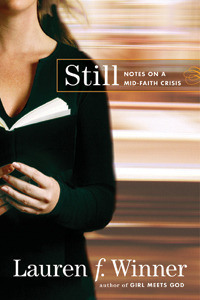 I just reread Still: Notes on a Mid-faith Crisis by Lauren Winner. She’s one of those authors whose books tell me new things each time I read them, and this re-reading was no different. She writes, “The reason I still continue calling myself a Christian is because this narrative of faith says more of who I am than anything else.”
I just reread Still: Notes on a Mid-faith Crisis by Lauren Winner. She’s one of those authors whose books tell me new things each time I read them, and this re-reading was no different. She writes, “The reason I still continue calling myself a Christian is because this narrative of faith says more of who I am than anything else.”
I sat in my library chair turning those words over and over in my mind. Who I am, who I am…what does that mean, exactly?
I thought about how I wish, just once, I could go off on somebody who gleefully exclaims, “God made my cancer disappear!” It says something about the depth of my own wickedness that I have literally had to walk away to keep from doing this, because my own father’s death is still so raw. On one hand, maybe I would be justified in doing so, as I’m still in that first-year grieving period, and you can get away with all kinds of things by blaming your actions on grief. On the other hand, I couldn’t do that to someone who has received the best possible news, because remission is no small thing, and I don’t want to be that person who enjoys pissing in other people’s Cheerios.
But the temptation is still there, which makes me think, Woman, you really do need Jesus.
And so I stay. It’s not in my nature to just walk away from something that invokes all kinds of questions. I’m that plucky little person to keep on pressing, keep on challenging, because simple, pat answers do not placate me, and only when I have the raw truth will I give up, no matter how unpleasant it might be.
To paraphrase Winner, when I was baptized, I was not promising to believe this story forever. Rather, I was promising that this is the story I will wrestle with forever.
***
If you liked this post, check out my memoir, Confessions of a Prodigal Daughter.
Filed under: Religion, Writing & Publishing Tagged: Author Sarahbeth Caplin, cancer, Christian culture, Christianity, Confessions of a Prodigal Daughter, evangelicals, grief








May 1, 2015
When agenda writes your novel
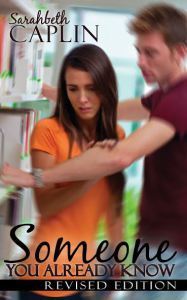 I firmly believe that writing is a vital part of healing from trauma, but not all writing that heals is meant to be published. At least not right away.
I firmly believe that writing is a vital part of healing from trauma, but not all writing that heals is meant to be published. At least not right away.
Despite being accepted by Booktrope for re-publication, I’ve decided that my first novel, Someone You Already Know, is no longer a story I feel passionate about. Told from the perspective of two teenage girls who experienced different forms of rape – one from a boyfriend, the other from a stranger – the girls struggle to understand what the other went through, albeit through biased lenses. While there is no such thing as a universal True Victim, I have met rape survivors who think if it didn’t happen to someone else exactly as it happened to them, it wasn’t really rape.
And then there’s the problem of not being taken seriously by the police, by family and friends, by the public at large. The book was written to address misconceptions and outright lies that even intelligent and otherwise “good” people believe about rape and assault.
It may sound compelling, and sure enough, the majority of reviews on Amazon seem to agree. The problem is what I see when I read it – to me, it’s driven more by agenda than plot. The majority of the book takes place in the girls’ heads, or in their interactions with each other, but not with many of their peers. The character John, the abusive boyfriend, is rather one-dimensional. His motives remain unclear throughout, which is not how the best “villain” characters are written.
The best villains, I think, are the ones with pasts and fleshed-out personalities. They are not evil for evil’s sake. At times, you might even empathize with them, and then find yourself wondering what the hell is wrong with you. Such was the case when I read Gone Girl and watched Breaking Bad. Those had villains that made me think.
Education and empathy with survivors were goals in writing this book, but if I’m completely honest, I also wanted the chance to vilify the real John – the one who will never, ever be arrested for what he did. The one who will never see a day in court, never be forced to come to terms with what he did by law enforcement.
I wanted to tell the world what he did without actually telling the world what he did, and fiction seemed like the perfect way to do it. The book is scattered with details that wouldn’t crucify his public image, but would be familiar to him if he ever read it (which I know he never would; that would require actually caring, which he no longer does): the gift he brought back for me from a vacation to Europe. His major in college. His black dog. None of which really served any purpose to the story as a whole.
Many chapters read like that of a recently traumatized, beyond furious, deeply depressed woman, and that’s not the reputation I want as an author. That is not how stories should be written. Good stories have depth, and this one, after re-reading it this week, just doesn’t. I can’t look at the Amazon reviews and believe otherwise, because as the author, this book has to something that I am proud of.
It was a good first attempt, but as far as rape stories go, I am far prouder of my next novel from Booktrope. A Stunning Accusation is, in my opinion, more maturely written, and says more about who I am as a writer and what I can do with words. There is mystery, suspense, and the accused villain has a backstory and appealing qualities that should make the reader feel drawn to him and ask questions the whole way through, as his girlfriend Adelaide does. It’s a book that raises points without beating the reader over the head with them. It’s a book I am proud to call mine.
Someone You Already Know has been removed from Createspace, but there are still third-party copies sold on Amazon if anyone is still curious to check it out. And I am so thrilled to announce that the rest of my book babies got interior makeovers from JT Formatting and are so beautiful. I hope you take the time to check them out.
Filed under: Rape Culture, Writing & Publishing Tagged: Author Sarahbeth Caplin, Controversy, depression, grief, rape culture, self-publishing, Writing








April 29, 2015
Why I don’t fit in, and why that’s a good thing
I’m blogging over at Patheos today. I was more than a little surprised that my friend Neil at Godless in Dixie would ask me, a Christian, to write a guest post for his blog about being atheist in the South, but I seized the opportunity because interfaith discussions are vital to the future of all faiths (as well as the safety and understanding of those who don’t adhere to any religious faith). It pains me that even mentioning the word “Christian” can conjure up false assumptions and even trigger bad memories for many people. I hope to change some of those assumptions with this post.
***
 Despite the shiny, new toy appeal of faith when I became a Christian in college, I was reluctant to ever wear a cross around my neck like so many of my friends did. Doing so meant that certain assumptions would be made: that I was probably raised a Christian, that the cultural components of Christianity were as ingrained in my daily life as breathing, and sadly, that my view of the world at large and of those who believed differently than I did was ignorant and narrow.
Despite the shiny, new toy appeal of faith when I became a Christian in college, I was reluctant to ever wear a cross around my neck like so many of my friends did. Doing so meant that certain assumptions would be made: that I was probably raised a Christian, that the cultural components of Christianity were as ingrained in my daily life as breathing, and sadly, that my view of the world at large and of those who believed differently than I did was ignorant and narrow.
Most importantly, a cross around my neck would conceal one aspect of my identity that I don’t share with most people I know: that I was raised Jewish.
When I meet atheists today (or non-religious people in general), they often doubt me when I say I understand what it’s like to be a minority. I completely understand their confusion: Christianity in the United States is everywhere from the Pledge of Allegiance, imprints on our currency, sale of alcohol on Sundays in some places, and so much more. I can barely wrap my head around it. From where they sit, it seems like American cultural norms were catered specifically for my ilk, and they are absolutely right.
Read the rest here.
Filed under: Religion Tagged: Campus Crusade for Christ, Christian culture, Christianity, evangelicals, grief, Judaism








April 24, 2015
How to be the kind of woman I approve of, because that’s the only kind there is
I doubt I’ll ever have the chutzpah to write a how-to book on anything, even if peddling myself as an expert on something might earn me better sales. Clearly, the all-knowing title How to be a Woman by Caitlin Moran is meant to grab people’s attention, and sure enough, it worked. But if it were honest, it would have been called “How to be Caitlin Moran, Who Also Happens to be a Woman.”
It’s a book I’m glad I read, but can’t say I’d ever want to read again. I’m glad I read it because I occasionally like to buy books from authors I already know I’ll disagree with on a number of issues. Regardless of your views on abortion, too many people form their opinion without personally experiencing it for themselves or talking to anyone who has, so the chapter about Moran’s abortion was eye-opening (though it did grieve me that it was easier for her to decide on having an abortion than how to remodel her kitchen. Maybe I was wrong in assuming that most women don’t decide on abortion lightly? Hey – I learned something).
But it also occurred to me just how un-feminist it is to tell other women how to be feminist, which is not an easy thing for me to admit. I wish more women saw pornography as degrading and unhealthy; I wish more women would stop using their looks as a means to get ahead. But that’s me assuming that women who think differently didn’t come to those viewpoints using their own free agency. I’ve been prone to thinking, She must have been abused – that’s why she thinks she can find worth in porn. She must have had shallow parents – that’s why she thinks her body is her greatest asset. What a shock it was to me that some people can disagree simply because they disagree.
So it was with some annoyance that I plodded through Moran’s book, feeling forced to swallow the notions that being feminist = being pro pornography (as long as no one is being coerced or trafficked), having strict guidelines on maintaining pubic hair, tasting my own menstrual blood (full-on judging for that one: who does that?!), eschewing high heels, naming your vagina, believing that stripping is bad, but somehow burlesque dancing is the Pinnacle of Empowerment. That doesn’t make her much different than The Patriarchy telling women they were designed for certain roles. A little more emphasis on a woman’s right to free agency over her own life choices would have been nice.
I get that, for posterity’s sake, feminism has to have some kind of definition that is more or less stagnant; mine is “believing in the inherent worth and dignity of all women, and that they should have the same rights and privileges afforded to men.” But even as general and non-specific as I think that answer is, it’s going to sound like preaching to somebody, which puts me in an awkward place between making the label my own and saying “screw it” to anyone who doesn’t like it, or calling myself something else altogether, because the original label has become too tainted.
Filed under: Feminism, Writing & Publishing Tagged: Abortion, Caitlin Moran, Controversy, Feminism, How to be a Woman










